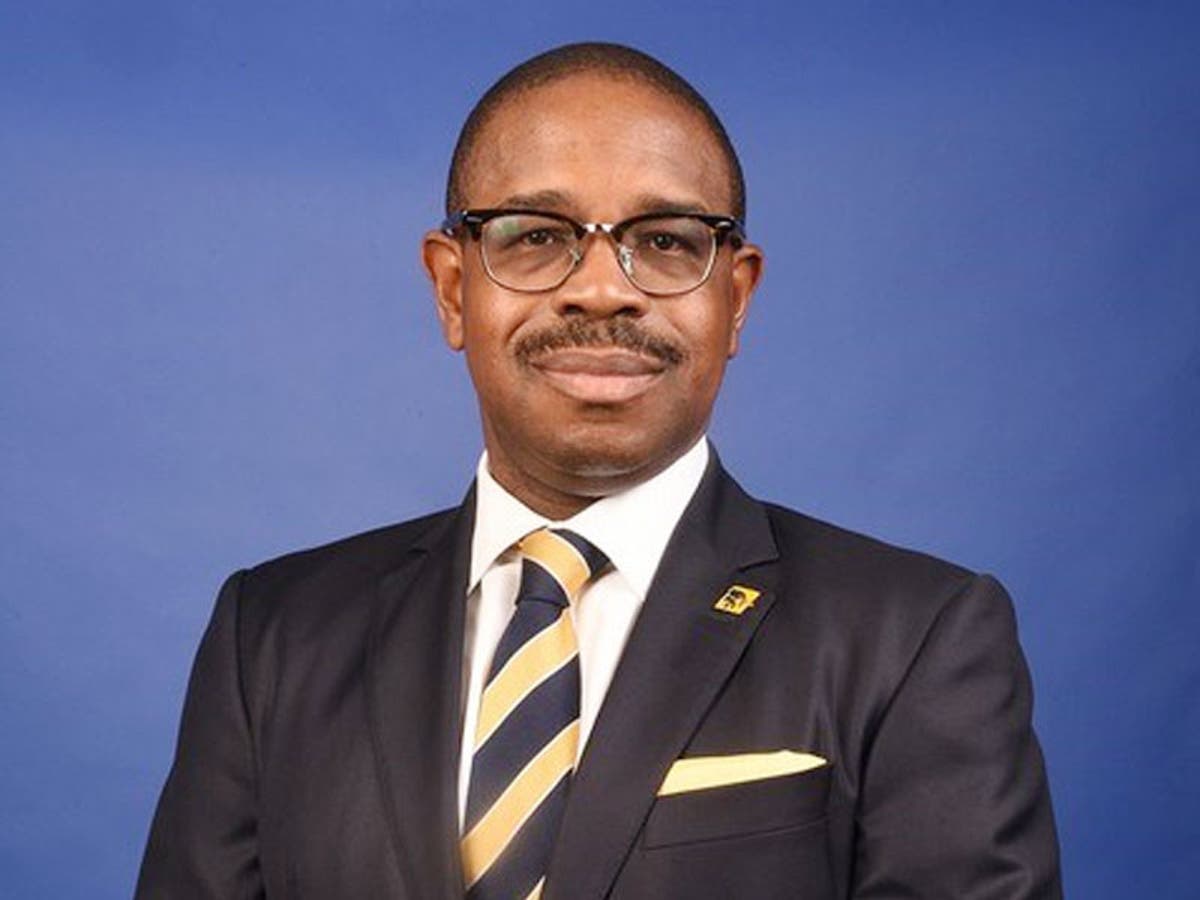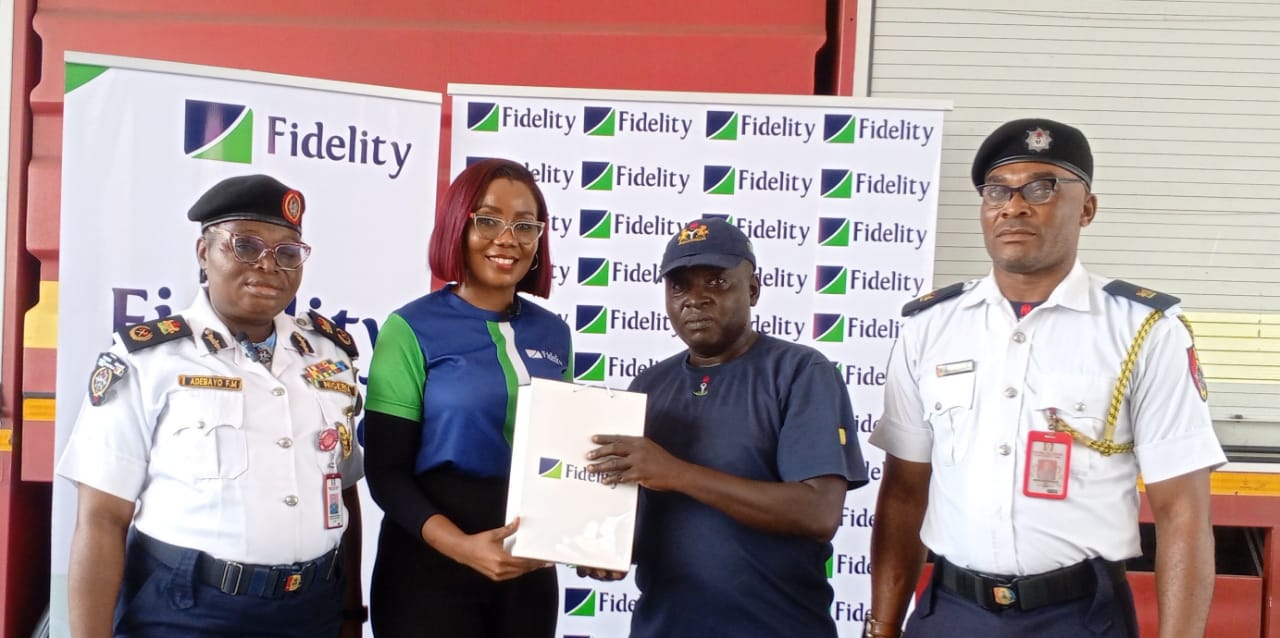Business
Banking Made Simple

Raheem Akingbolu reviews the new FirstBank’s corporate website and reckons that it would go a long way in strengthening the ability of the bank’s patrons and other potential customers in addressing basic banking operations.
Outside the physical identity of any brand, the most accessible door into operations of a company in today’s market is perhaps the website. With digital technology taking the lead in today’s business environment, website has swiftly become the virtual meeting point for sellers and buyers.
As a result of the fact that website can make or mar companies, depending on its message and aesthetic look, companies are now evolving every day to communicate their ideals through their websites. Today, having a website and an online presence give brand promoter opportunity to market their products online.
For the management of First Bank of Nigeria Limited, the new website represents the trending posture of the brand. In line with today’s business environment, the bank has continued to evolve and reposition to strengthening its operational skills. Though ageing, the FirstBank brand is ever young at heart. Through the website, First Bank has been able to present less cumbersome operations and by extension woos potential members of the public to join the FirstBank’s family.
Specifically, the website appears to have demystified online banking. Among other unique features, it allows self-registration of online banking; it makes provision for loan facility and encourages multiple transfers at once.
In a way, handlers of the FirstBank brand show through the friendly site that they are not ready to waste their customers’ time. They are aware that people don’t visit their website because they are looking for somewhere to spend their extra time. The promoters are quite aware that their customers simply want to get to things quickly and that is why the messages on the website speak to the specifics. Technically but smoothly, each category of the products displayed also parades key issues without confusing customers with irrelevant details.
Though an upgrade of the old one, the current website plays up features that are streamlined to reinforce its role in delivering seamless banking and technology solutions to its customers across the world.
The website is configured with modern design and improved functionality that eases customer experience whilst carrying out various activities on the site, including electronic banking. Non-customers are also able to open an account, putting them at an edge in the industry as they establish a relationship with the bank that puts its customers first.
For instance, many analysts have commended the fact that the bank adopts a fresh, magazine-style look and feel for easy navigation in order to promote the access to essential information for its customers, FirstMonie agents, prospective agents and the public. Another beautiful thing about the site is that the upgrade also guides an average customer to make well-informed decisions about one’s personal, business and private financial needs.
There is no doubt the fact that the bank keys into the popular theory that responsive websites are now the rule for institutions, not the exception. Recent experience in the market place has shown that offering a seamless and consistent user experience, responsive design, allows a single site to serve audiences on all devices and orientations. However, if a company’s analytics show that the percentage of mobile traffic to the company’s site is at least 10% and steadily growing, responsive design is a must for your redesign.
The new FirstBank website is built on a powerful content management system that meets all of the bank’s needs. Meanwhile, some of many basic considerations for institutions, which the new website has explored are; ease of use, features, security and responsive design support.
In financial website, content is more important than ever to a financial website, offering visitors useful information, tools and resources to make better decisions with their money. Again, First Bank explores this maximally.
The bank’s messaging is simple and consistent, and organised in a scannable format for users to digest and take action. Additionally, like all great sites, the site focuses content around visitor’s needs, offering solutions and varied content types.
Being the first impression that its customers gets, website designers often advise that site design should be visually consistent with everything else the audience sees – from customer’s branch to his statement inserts to his emails.
In a way, the design of the FirstBank website is unique, uncluttered and well-planned so it can keep up with the institution’s changes. Another beautiful thing is that the site’s imagery feel distinct and appeal directly to First Bank’s geographic footprint and specific demographics, successfully balancing branded photography and promotional graphics. Each element of the design has a clear strategic purpose, align with the FirstBank brand promise, and send the right message to the bank’s customers.
Business
FirstBank Launches 500-Seater Bleacher at Carnival Calabar & Festival 2025

West Africa’s premier financial institution and financial inclusion services provider, FirstBank, has officially announced its sponsorship of the Carnival Calabar & Festival 2025, unveiling a landmark addition set to redefine the carnival experience — the first-ever private premium seating area at the event.
The highlight of FirstBank’s participation is the construction of a 500-seater premium bleacher, designed to provide comfort, safety, and an elevated viewing experience for carnival enthusiasts.
Speaking on the sponsorship, the Acting Group Head Marketing and Corporate Communications, FirstBank, Olayinka Ijabiyi, noted that the carnival aligns with the Bank’s First@Arts initiative, a platform dedicated to supporting the creative arts value chain across Nigeria. He said, “We recognise the transformative power of the arts, including carnivals, in inspiring people and strengthening national unity. For more than 131 years, we have supported platforms that promote self-expression, social reflection and cultural exchange. Our investment in the Carnival Calabar & Festival demonstrates our commitment to preserving the nation’s rich cultural heritage through First@Arts.”
“As part of our sponsorship this year, we are introducing the first-ever private 500-seater premium bleacher to further elevate the carnival experience. This exclusive seating is designed to provide exceptional comfort and an unforgettable viewing experience for attendees,” Ijabiyi added.
The Chairman of the Cross River State Carnival Calabar Commission, Gabe Onah, also commented on FirstBank’s sponsorship. “FirstBank’s involvement is a strong demonstration of private-sector support for culture and tourism. This partnership not only enhances the overall quality of the carnival but also strengthens its global appeal,” he said.
The Carnival Calabar & Festival 2025 is officially marketed by Okhma Global Limited, the appointed Official Marketer responsible for brand partnerships, promotional engagements, and ticket sales. Okhma Global Limited has partnered with the Cross River State government in delivering Carnival Calabar & Festival for over ten years, playing a key role in strengthening the carnival’s commercial growth and global visibility.
Business
Yuletide: Ecobank Urges Vigilance, Guarantees Seamless Banking

Ecobank Nigeria, a member of Africa’s leading pan-African banking group, has assured customers of uninterrupted access to banking services throughout the year-end holiday period via its secure and robust digital platforms. The Bank also urged customers to remain vigilant against fraud and scams during the festive season.
Speaking on the development, Victor Yalokwu, Head, Products & Analytics, Consumer & Commercial Banking, Ecobank Nigeria, said the Bank’s digital channels — including the Ecobank Mobile App, Ecobank Business App, USSD *326#, Ecobank Online, OmniPlus, Omnilite, EcobankPay, RapidTransfer, Ecobank Cards, ATMs, PoS terminals, and over 35,000 Ecobank Xpress Point (Agent Banking) locations nationwide — will remain fully available to support customers throughout the yuletide and year-end holiday period.
He noted that customers will continue to enjoy a wide range of services during the period, including local and international funds transfers, bill payments and airtime top-ups, merchant payments, balance inquiries and account statements, as well as cardless cash withdrawals via ATMs.
According to Yalokwu, “Ecobank encourages customers to leverage these digital solutions for safe, fast, and efficient banking, especially during the festive season when convenience and reliability are essential. While physical branch operations may be subject to adjusted working hours in line with public holidays, customers can be assured that Ecobank’s digital platforms are designed to deliver uninterrupted service and enhanced security at all times. Ecobank remains committed to providing innovative financial solutions and exceptional customer service, and we wish all our customers a joyful festive season and a prosperous New Year.”
Yalokwu also cautioned customers to remain vigilant against fraudsters and scammers during the period. “Before you wrap up the year, tighten your security. December brings online sales, travel, and year-end distractions—this is exactly when scammers are most active. From fake festive deals to cloned merchant sites and suspicious messages, staying vigilant helps keep your money safe.”
He advised customers to shop only on trusted websites, never share their PINs, passwords, or one-time passwords (OTPs), avoid banking on public Wi-Fi networks, be cautious of urgent or emotionally charged messages, and regularly review their account activity.
Business
Fidelity Bank Donates Hoses, Water Pumps to Fire Service

Fidelity Bank Plc has donated firefighting and preventive equipment, including hoses and gasoline-powered water pumps, to the Ikoyi Fire Service Station in Lagos, reinforcing efforts to improve emergency response and promote community safety.
The donation was executed under the Fidelity Helping Hands Programme (FHHP) by the bank’s True Serve team. Through the initiative, Fidelity Bank employees identify critical community needs, raise funds, and receive matching financial support from the bank to implement impact-driven projects.
Speaking on the initiative, Divisional Head, Brand and Communications Division at Fidelity Bank, Dr Meksley Nwagboh, said the intervention reflects the bank’s commitment to public safety, environmental protection, and sustainable community development.
“Community safety is a shared responsibility. Fidelity Bank remains committed to supporting initiatives that protect lives, property, and the environment,” Nwagboh said, adding that preventive measures remain more effective than emergency responses.
He noted that providing the right tools to first responders aligns with the bank’s broader goal of enabling people to live safe, meaningful, and empowered lives.
Lagos State Controller of the Federal Fire Service, Controller of Fire (CF) Funke Adebayo, commended Fidelity Bank for the timely support, particularly as the festive season approaches amid dry weather conditions that heighten fire risks.
She urged residents to remain vigilant and warned parents against allowing children to handle fireworks during celebrations, stressing that careless handling of fire could lead to avoidable disasters.
Adebayo also disclosed that the Fire Service has intensified sensitisation visits to corporate organisations to promote fire safety and discourage unsafe practices.
Also speaking, Area Commander, Onikan Fire Station, Chief Superintendent of Fire (CSF) Oswere Michael, expressed appreciation for the donation, noting that it would strengthen the station’s operational capacity.
He encouraged households, businesses, and community members to prioritise fire safety, describing collective responsibility as critical to preventing fire outbreaks.
Fidelity Bank Plc is a full-fledged commercial deposit money bank serving over 9.1 million customers through its digital platforms, 255 business offices across Nigeria, and its UK subsidiary, FidBank UK Limited. The bank has received multiple local and international awards in recognition of its performance in digital transformation, MSME banking, and innovative financial services.
Photo – L-R: Lagos State Controller, Federal Fire Service, CF (Controller of Fire), Adebayo Funke; Tolulope Rojaiye, Marketing Business Partner, Fidelity Bank Plc; Assistant Superintendent of Fire, Ishola Folorunsho Olufemi; and Station Commander, Onikan Fire Station, Lagos, Okeke Ferdinand; during the donation of firefighting equipment to the Federal Fire Service at Ikoyi, Lagos, recently.






